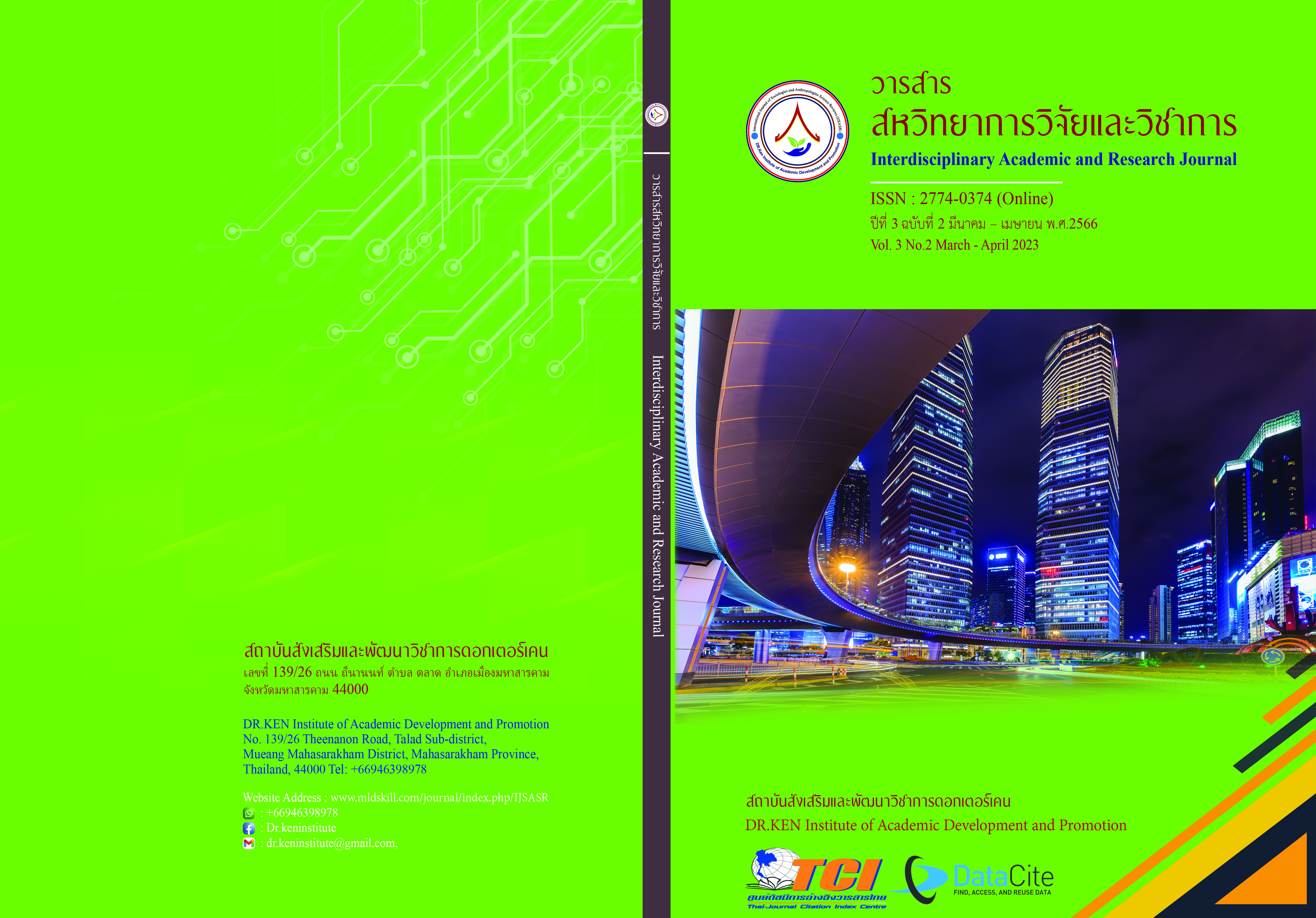Problems of Senators According to the Constitution of the Kingdom of Thailand B.E. 2560 (2017)
DOI:
https://doi.org/10.14456/iarj.2023.51Keywords:
Senator; , Constitution; , Kingdom of ThailandAbstract
Thailand has always faced problems arising from the method of obtaining senators from the past to the present, especially in the present. Determining the method for obtaining senators according to the provisions of the Constitution of the Kingdom of Thailand is still inconsistent with the authority and duties. inevitably results in the inability to achieve the objectives of having a Thai Senate truly which affects the system of checks and balances image of democracy and political stability of Thailand The Constitution of the Kingdom of Thailand B.E. 2560 is the latest constitution of Thailand. This constitution reflects democratic governance and the rule of law under Section 2 and Section 3 of the Constitution of the Kingdom of Thailand, 2017 both of which have a close relationship, this principle continues from the previous constitution. And the legislative branch with 2 houses, namely the House of Representatives and the Senate, but for many reasons that appear in this constitutional preamble, such as corruption distortion and Lack of awareness of responsibility for the nation and the people. Politics and governance that are not suitable for the country's circumstances, etc. All this resulted in the Senate under this constitution being elected, not elected by the people. The people, therefore, have no participation and no power to determine their destiny. In addition, this constitution also prescribes powers to the Senate that are different from other constitutions of Thailand, for example, the Senate has the power to vote for the Prime Minister, etc. All this affects both democracy and the rule of law. Both of which are the core of the constitution. The researcher, therefore, presents the following study issues. To be analyzed for adaptation to Thailand. There shall be a method for acquiring suitable senators. This is consistent with the powers and duties of the Thai Senate. The purpose of this research article is to present the problems of senators under the Constitution of the Kingdom of Thailand B.E. 2560 has the following objectives: to study the basic concepts theoretical concepts in the constitution and the need for a Senate to study the issues that came to the Senate and the authority of the Senate according to the Constitution of the Kingdom of Thailand B.E. 2560 to study the origin of the problem Senator's authority of the study group Which such countries include the United Kingdom. The Japan United States Australia Republic of Ireland Germany and the French Republic to be developed, improved, and corrected The origin and authority of the senators of Thailand Research results: Considering the part of Thailand, it can be seen that the stipulation of senators According to the current constitution, it relies on a method of obtaining by selection by a selection committee that has no connection with the people at all. would be contrary to the principles of democratic governance and contrary to the development of democracy according to international principles.
References
เกียงไกร รอบรู้ (2557). กฎหมายรัฐธรรมนูญ. กรุงเทพฯ: บริษัท วี พริ้นท์ (1991) จำกัด.
คณิน บุญสุวรรณ. (2556). ประวัติรัฐธรรมนูญไทย. กรุงเทพฯ: บริษัท เอมี่ เอ็นเตอร์ไพรส์จำกัด.
ชาญชัย แสวงศักดิ์ (2557). กฎหมายรัฐธรรมนูญ : แนวคิดและประสบการณ์ของต่างประเทศ.กรุงเทพฯ: โรงพิมพ์เดือนตุลา.
ณัฐกร วิทิตานนท์ (2557). หลักรัฐธรรมนูญเบื้องต้น. กรุงเทพฯ: บริษัท วี พริ้นท์ (1991)จำกัด.
ธีรเดช นรัตถรักษา (2557). ความรู้เกี่ยวกับกฎหมายรัฐธรรมนูญ ฉบับชั่วคราว 2557. กรุงเทพฯ: เจริญดีมั่นคงการพิมพ์.
บุญศรี ไพรัตน์ (2557). รัฐธรรมนูญแห่งราชอาณาจักรไทย (ฉบับชั่วคราว) พุทธศักราช 2557. กรุงเทพฯ: บริษัท สำนักพิมพ์ พ.ศ. พัฒนา จำกัด.
มานิตย์ จุมปา (2557). หลักกฎหมายรัฐธรรมนูญ (principles of constitutional law). กรุงเทพฯ : บริษัท วี. พริ้น (1991) จำกัด.
Downloads
Published
How to Cite
Issue
Section
License
Copyright (c) 2023 ศิริวดี วิวิธคุณากร, สุขสมัย สุทธิบดี, ทวีพฤทธ์ ศิริศักดิ์บรรจง

This work is licensed under a Creative Commons Attribution-NonCommercial-NoDerivatives 4.0 International License.
Copyright on any article in the Interdisciplinary Academic and Research Journal is retained by the author(s) under the under the Creative Commons Attribution-NonCommercial-NoDerivatives 4.0 International License. Permission to use text, content, images, etc. of publication. Any user to read, download, copy, distribute, print, search, or link to the full texts of articles, crawl them for indexing, pass them as data to software, or use them for any other lawful purpose. But do not use it for commercial use or with the intent to benefit any business.
















.png)


